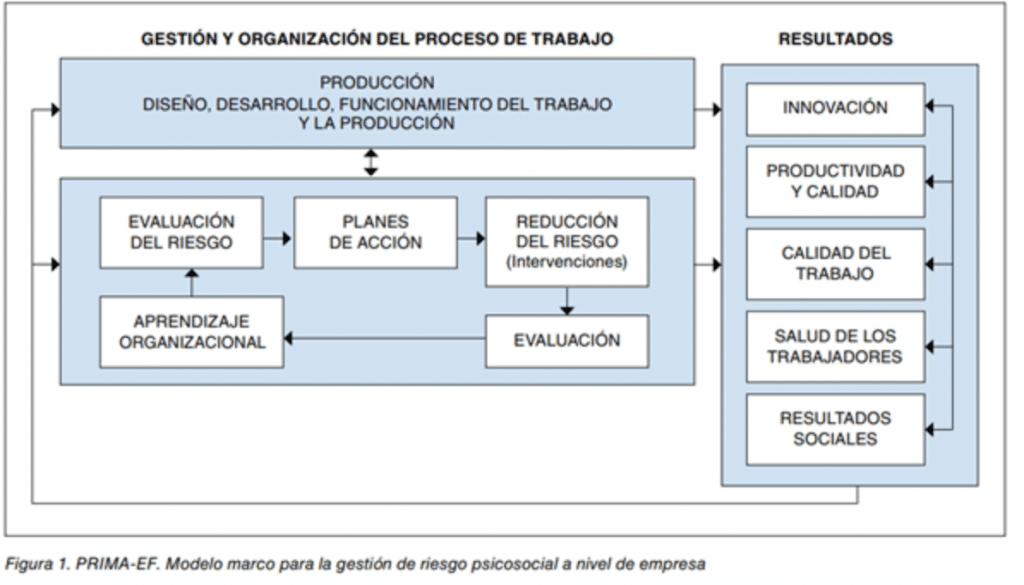With Departure Registration dated April 14, 2021, the Labor and Social Security Inspection publishes Technical Criterion 104/2021, on actions of the Labor and Social Security Inspection in Psychosocial Risks.
This document adapts the “Principles of action for labor inspectors with respect to diversity, in particular with respect to age, gender and other demographic characteristics” and the “Guide to assess the quality of risk assessments and prevention management with respect to the prevention of psychosocial risks”, documents of the Committee of Senior Officials of the Labor Inspection (SLIC).
This Criterion maintains the validity of Technical Criterion 69/2009 on Harassment and Violence at Work. The significance of the psychosocial factors for health of workers has been increasingly recognized more widely.
Changes in organizations, current globalization processes and the exposure of psychosocial risks have become more frequent and intense, making it necessary to identify, evaluate and control them in order to avoid their associated risks for health and safety at work.
Psychosocial factors
Psychosocial factors are considered such as working conditions (Art.4.7.d LPRL) or characteristics thereof related “to the organization, the content of the work and the performance of the task and that have the capacity to affect both the well-being or health (Physical, mental or social) of the worker and the development of the work (INSST NTP 443, 1997) .
Classification of Psychosocial Risk factors
The scientific and technical community does not use a single classification of psychosocial risk factors. As an example, the Psychosocial Risk Management-Excellence Framework (PRIMA-EF) consortium proposes a classification model, as well as a Framework model for psychosocial risk management at the company level.

Precautionary measures
This technical criterion proposes that all psychosocial risk factors that have been identified and evaluated must be accompanied by preventive measures to address them within the general planning of preventive actions in the same way as is done with respect to other occupational risks.
These measures are classified into:
- Measures organizational or primary: Directed to the origin of the problem to try to eliminate it.
- Measures of coping or secondary: Aimed at enabling the worker to acquire sufficient practices or knowledge to face the psychosocial risk factors to which he or she is exposed.
- Measures of rehabilitation or tertiary: Aimed at the rehabilitation and recovery of workers who have suffered health damage resulting from exposure to psychosocial risks.
The evaluation of psychosocial risks can reveal the existence of discriminatory conditions for certain groups of workers.
The actions of the ITSS on the management of psychosocial risks may have their origin in the following circumstances, among others:
- Psychosocial risk prevention campaigns.
- Specific complaint of lack of prevention and other circumstances.
- Initiative of the Labor and Social Security Inspection.
Measures derived from inspection actions
As a general guiding criterion, it can be understood that absolute non-compliance with all psychosocial risk management obligations may give rise to the initiation of the sanctioning procedure, while partial non-compliance with obligations may give rise to a requirement for the adoption of measures. corrections within a specific period.
Failure to comply with the aforementioned regulations will give rise to sanctions from the Labor Inspection, with fines that may reach €800,000 in the most serious cases.
The Labor and SS Inspection School developed on April 28 a Informative day on the occasion of Safety and Health at Work Day. The purpose of the Conference was to presentation of Technical Criterion 104/2021 on actions of the Labor and Social Security Inspection on Psychosocial Risks and you can delve deeper into the content at the following link:
If you are interested in training in this field, the Master in HR: People Management, Talent Development and Labor Management will enable you to assume all the own functions and responsibilities of the address of a HR department, with special focus on two large areas: Labor Administration and Talent Management.




































